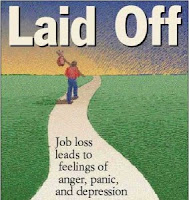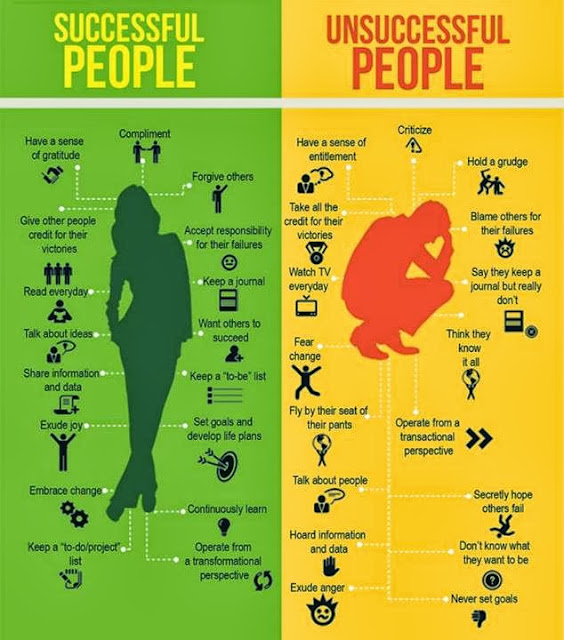Coping with a job loss financially
Job loss is relatively a new terminology unknown to our parents and our ancestors. Since the liberalization of the Indian economy, this term has come into a common usage (ask the current generation of Indians). Everyday we read in the newspapers that people loose the job and the company sites various reasons for the same. People working in MNCs also often encounter someone or the other being fired right in front of their eyes. The reason behind being fired or loosing the job might be numerous, but the consequence is the person being fired undergoes severe trauma and his finance goes for a toss.
In a capitalist economy loosing a job or getting fired and finding a new one is very common but the previous generation of Indians have experienced only a socialist economy and hence they could not and cannot teach us how to survive in a capitalist economy. The experience learned by living in socialist economy is useless to survive in a capitalist economy.
To really survive in a capitalist economy , we need to understand how a capitalist economy works. But before all googling out for any information, you need to take care of our finances. Every citizen of a capitalist economy/society should understand and look after his own finances. There is a proverb in hindi - "Ab pachtaye hot kya jab chidiya chug gayi kheth?" Which equals "prevention is better than cure."
Our finances had to be put in the right place long before we loose a job or get fired. To explain let me take an example.
Let us consider Mr.X is a software engineer in an MNC. His take home salary per month is Rs30,000/-. His total expense per month is Rs28,000/-. He can save the rest. Now if one fine day Mr.X looses his job, the first problem coming his way would be financial commitments. To avoid getting into a financial mess Mr.X should have saved Rs84,000/- (28,000X3, ie. three months of his personal expense) in a separate bank account in the form of F.D or at least simply in a bank account. So even if Mr.X looses his job he need not worry about his financial commitments for the next three months and by that time he can search and find another job. His family and his children's needs will be taken care off.
The next problem that needs to be attended after the finances is medical emergency. Medical emergencies to self or to dependent family members can arise anytime and that certainly does not come under the monthly financial budget. Majority of the educated professionals make a huge blunder here. They feel that the company offered medical insurance is more than enough for them. They do not use their common sense that when they loose their job they also loose the medical insurance cover provided or sponsored by the company. Hence any medical emergency during the unemployed period will only lead to additional financial burden. To avoid this spend some money and buy yourself a medical cover. There are lots and lots of general insurance companies offering affordable medical insurances. For a family cover of Rs3 lakh they charge just Rs7000/- per year. This insurance expense will also help you in paying lesser income tax and also will come in very handy in times of need.
By addressing these two possible financial setbacks you can now stop worrying about a job loss or getting fired and concentrate more on your work and enjoying life with your family members. If a bad time comes you are well prepared to face it.
Thing wise and act wise!
In a capitalist economy loosing a job or getting fired and finding a new one is very common but the previous generation of Indians have experienced only a socialist economy and hence they could not and cannot teach us how to survive in a capitalist economy. The experience learned by living in socialist economy is useless to survive in a capitalist economy.
 |
| Got this tweet minutes after I started writing this blog post! |
To really survive in a capitalist economy , we need to understand how a capitalist economy works. But before all googling out for any information, you need to take care of our finances. Every citizen of a capitalist economy/society should understand and look after his own finances. There is a proverb in hindi - "Ab pachtaye hot kya jab chidiya chug gayi kheth?" Which equals "prevention is better than cure."
Our finances had to be put in the right place long before we loose a job or get fired. To explain let me take an example.
Let us consider Mr.X is a software engineer in an MNC. His take home salary per month is Rs30,000/-. His total expense per month is Rs28,000/-. He can save the rest. Now if one fine day Mr.X looses his job, the first problem coming his way would be financial commitments. To avoid getting into a financial mess Mr.X should have saved Rs84,000/- (28,000X3, ie. three months of his personal expense) in a separate bank account in the form of F.D or at least simply in a bank account. So even if Mr.X looses his job he need not worry about his financial commitments for the next three months and by that time he can search and find another job. His family and his children's needs will be taken care off.
The next problem that needs to be attended after the finances is medical emergency. Medical emergencies to self or to dependent family members can arise anytime and that certainly does not come under the monthly financial budget. Majority of the educated professionals make a huge blunder here. They feel that the company offered medical insurance is more than enough for them. They do not use their common sense that when they loose their job they also loose the medical insurance cover provided or sponsored by the company. Hence any medical emergency during the unemployed period will only lead to additional financial burden. To avoid this spend some money and buy yourself a medical cover. There are lots and lots of general insurance companies offering affordable medical insurances. For a family cover of Rs3 lakh they charge just Rs7000/- per year. This insurance expense will also help you in paying lesser income tax and also will come in very handy in times of need.
By addressing these two possible financial setbacks you can now stop worrying about a job loss or getting fired and concentrate more on your work and enjoying life with your family members. If a bad time comes you are well prepared to face it.
Thing wise and act wise!


Comments
Post a Comment